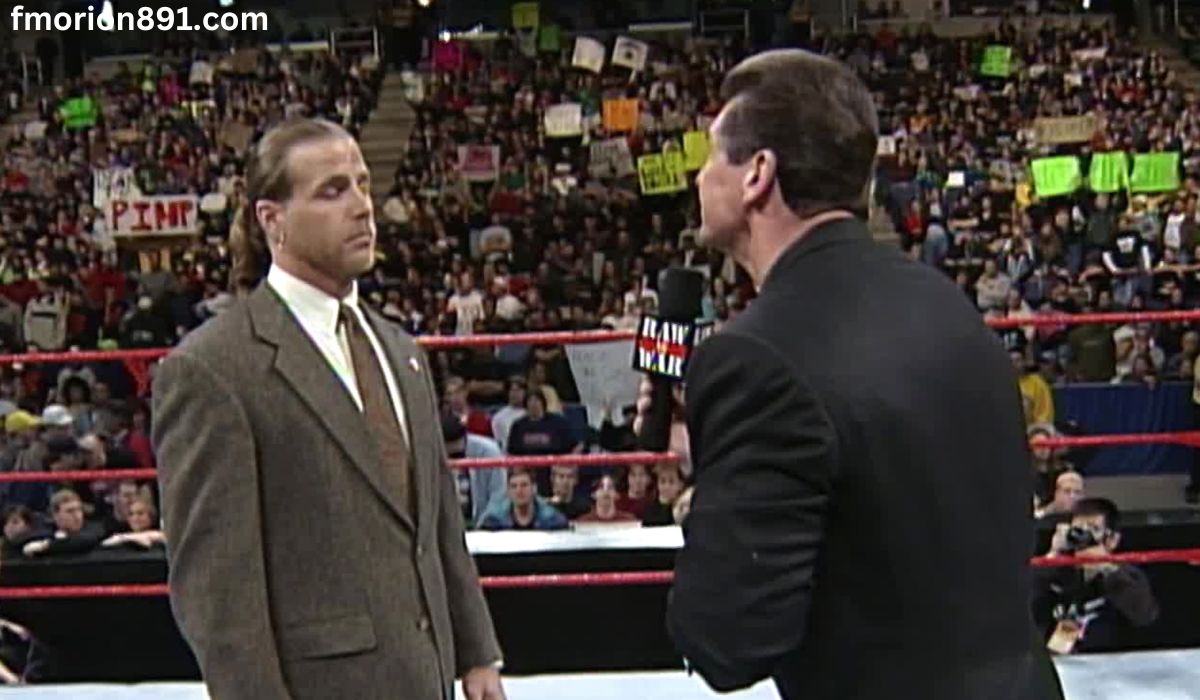Introduction
“What made Vince McMahon and Kevin Kelly such a dynamic duo on WWF Raw in 1998?” This is a question that fans of professional wrestling often ponder. The late 1990s were a transformative time for the World Wrestling Federation (WWF), with the company’s flagship program, “Monday Night Raw,” playing a pivotal role in reshaping the industry. Central to this evolution was the commentary team of Vince McMahon and Kevin Kelly, whose collaboration left an indelible mark on wrestling history. In this article, we explore the rise of Vince McMahon, the emergence of Kevin Kelly, and how their partnership on Raw in 1998 changed the landscape of professional wrestling.
Part 1: The Rise of Vince McMahon
The McMahon Family Legacy
The McMahon family has been synonymous with professional wrestling for decades. Vince McMahon’s father, Vincent J. McMahon, was a promoter who laid the foundation for what would become the WWF. Under the elder McMahon’s leadership, the company grew from a regional promotion to a national powerhouse. However, it was Vince McMahon’s vision and ambition that took the WWF to unprecedented heights.
The Purchase of WWF
In 1982, Vince McMahon bought the WWF from his father. At the time, the wrestling industry was fragmented into regional territories, each with its own stars and storylines. McMahon had a different vision; he saw the potential for a nationwide wrestling promotion that could appeal to a broad audience. He aggressively expanded the WWF, acquiring talent from other promotions and securing television deals that brought wrestling into the homes of millions of Americans.
Visionary Leadership
McMahon’s innovative approach to wrestling transformed it from a niche sport into a mainstream entertainment spectacle. He introduced larger-than-life characters, dramatic storylines, and pay-per-view events that generated significant revenue. His willingness to push boundaries and take risks paid off, as the WWF became a cultural phenomenon. By 1998, McMahon was not just a promoter but also an on-screen character, often portraying the villainous “Mr. McMahon” persona.
Part 2: The Emergence of Kevin Kelly
Early Career
Kevin Kelly began his career in sports broadcasting, working in radio and television before joining the world of professional wrestling. His background in journalism and broadcasting made him a natural fit for the role of a wrestling commentator. Kelly’s ability to convey excitement and drama through his voice quickly caught the attention of the WWF.
Joining the WWF
Kelly joined the WWF commentary team in the mid-1990s, during a time of significant change in the company. His calm demeanor and professional delivery provided a stark contrast to the often chaotic and unpredictable nature of wrestling. Kelly’s ability to balance play-by-play commentary with insightful analysis made him a valuable asset to the WWF.
Unique Style
What set Kelly apart from other commentators was his ability to connect with the audience. He had a knack for making the action in the ring feel accessible and relatable, even to casual viewers. Kelly’s commentary was informative without being overwhelming, and he had a natural chemistry with his co-commentators. This was especially evident during his time working alongside Vince McMahon on Raw in 1998.
Part 3: The McMahon-Kelly Dynamic
On-Screen Chemistry
The partnership between Vince McMahon and Kevin Kelly on Raw in 1998 was a unique one. McMahon, as both a commentator and an on-screen authority figure, brought a level of intensity and unpredictability to the broadcast. Kelly, on the other hand, provided a steadying presence, offering analysis and insight that complemented McMahon’s bombastic style.
McMahon’s Authority
As the owner of the WWF, McMahon’s authority was unquestionable. This extended to his role as a commentator, where he often blurred the lines between his real-life position as the company’s CEO and his on-screen persona. McMahon’s commentary was characterized by a mix of enthusiasm and aggression, which added an extra layer of drama to the action in the ring.
Kelly’s Insights
While McMahon brought the fire, Kelly brought the facts. His ability to break down the intricacies of a match and explain the motivations of the wrestlers added depth to the broadcast. Kelly’s insights were particularly valuable during key storylines, where his commentary helped to advance the narrative and keep viewers engaged.
Part 4: Memorable Moments
Iconic Matches
The year 1998 was filled with iconic matches on Raw, many of which were made even more memorable by the commentary of McMahon and Kelly. One such match was the confrontation between “Stone Cold” Steve Austin and The Rock, where the tension was palpable, and the commentary elevated the stakes. McMahon’s bias towards The Rock, coupled with Kelly’s impartial analysis, created a compelling dynamic that drew viewers in.
Controversial Moments
McMahon and Kelly were no strangers to controversy, particularly in an era where the WWF was pushing the envelope with its “Attitude Era” content. One such moment was the infamous “Austin vs. McMahon” storyline, where McMahon’s on-screen animosity towards Austin spilled over into the commentary booth. Kelly’s attempts to maintain professionalism during these heated exchanges only added to the drama.
Audience Impact
The commentary team of McMahon and Kelly played a significant role in engaging the audience. Their contrasting styles created a balance that appealed to both hardcore wrestling fans and casual viewers. The combination of McMahon’s larger-than-life personality and Kelly’s relatable commentary kept audiences invested in the storylines and matches.
Part 5: The Legacy of Their Partnership
Impact on the Industry
The partnership between Vince McMahon and Kevin Kelly on Raw in 1998 left a lasting impact on the wrestling industry. Their dynamic helped to elevate the importance of commentary in professional wrestling, showing that the voices behind the microphone could be just as influential as the action in the ring.
Enduring Popularity
Even years after their time together on Raw, the commentary of McMahon and Kelly remains popular among wrestling fans. Many of the matches and moments they called have become iconic, with fans revisiting them on streaming platforms and social media. Their partnership is remembered as one of the highlights of the “Attitude Era.”
Cultural Influence
The influence of McMahon and Kelly extended beyond the wrestling ring, as their work helped to shape the cultural perception of professional wrestling. They played a key role in making wrestling a mainstream form of entertainment, and their commentary continues to be referenced in popular culture.
You May Also Like: Art Students League E-telier Reddit: Explore Courses and Connect
Conclusion
In summary, the collaboration between Vince McMahon and Kevin Kelly on WWF Raw in 1998 was a defining moment in professional wrestling. Their contrasting styles and unique chemistry brought a new level of excitement and drama to the broadcast, leaving a lasting legacy that continues to influence the industry today.
FAQs
1. What made the Vince McMahon and Kevin Kelly commentary team unique in 1998?
Their contrasting styles—McMahon’s intensity and Kelly’s analytical approach—created a dynamic and engaging broadcast for WWF Raw.
2. How did Vince McMahon’s role as both a commentator and authority figure impact WWF Raw?
McMahon’s dual role added drama and unpredictability to the show, blurring the lines between reality and storyline.
3. What were some of the most memorable moments called by McMahon and Kelly in 1998?
Iconic matches like “Stone Cold” Steve Austin vs. The Rock were made even more memorable by their commentary.
4. How did Kevin Kelly’s commentary style differ from other WWF commentators?
Kelly’s calm, informative style provided balance to the often chaotic and intense WWF broadcasts, making the action accessible to all viewers.
5. What is the legacy of the McMahon-Kelly partnership on WWF Raw?
Their collaboration helped to elevate the importance of commentary in wrestling and remains popular among fans to this day.










